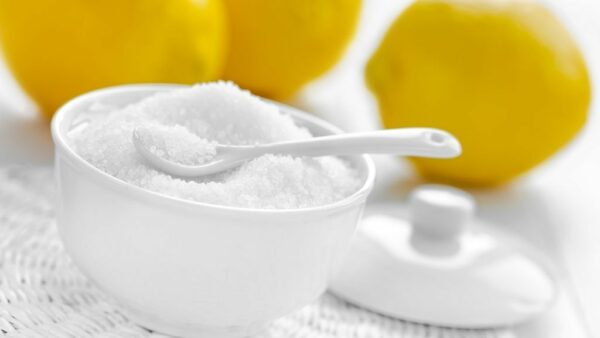When you take vitamin C, you provide your body with Ascorbic Acid – one of the most important vitamins, which you need every single day. Remember the name of Albert Szent-Györgyi who received a Nobel Prize in medicine in 1937 for his research on the biological impact of vitamin C. Ascorbic Acid plays a key role in keeping healthy and overcoming illnesses. There is no way around it, we should all take vitamin C, taking into account some important rules as well. Learn everything about the impact of Ascorbic Acid!
This article will help you with the following questions:
- What is Ascorbic Acid good for?
- How can you get Ascorbic Acid?
- Dosing Ascorbic Acid
- Ascorbic Acid for food purposes
What is Ascorbic Acid good for?
Ascorbic Acid or vitamin C has an important role in supporting our immune system. It is a crystalline, water-soluble organic acid with an antioxidant effect. Ascorbic Acid is stored in the liver, the pituitary gland and the adrenal gland, but we need such a large amount that we must replenish the supplies used by our body. It is such a versatile vitamin that it will make you wonder why you haven’t taken it regularly before. Besides enzyme activation, Vitamin C also supports bone and cartilage formation. It facilitates iron absorption and neutralizes free radicals.
In addition, vitamin C is an antioxidant – it is vital for dealing with stress, and it also enhances physical performance. It participates in collagen production and is involved in wound healing. Vitamin C provides protection against bacterial and viral contamination, so it is needed for every cell. You should take it even if you are healthy and increase the dosage when you are ill.
How can you get Ascorbic Acid?
The most natural way of supplying your body with vitamin C is by eating fruits and vegetables. Ascorbic Acid is not only found in citrus fruit, orange, and lemon – which are the obvious source of vitamin C – several other fruits and vegetables contain a large amount. Examples include parsley, yellow and red pepper, cauliflower, brassica vegetables, broccoli, brussels sprout, sorrel, horseradish, kiwi fruit, rosehip, papaya, hippophae (sea buckthorn) and red fruits.
It’s common knowledge that freshly picked fruits and vegetables gradually lose their vitamin C content each day, so we must eat them immediately or freeze them. This is the only way you can preserve most of the Ascorbic Acid. When you cook, you should steam fruits and vegetables slowly as Ascorbic Acid decomposes at around 60 °C. This makes it important to complete the naturally taken amount with additional high-quality vitamin C pills or Ascorbic Acid powder.
Dosing Ascorbic Acid
As we have mentioned before, we should consume Ascorbic Acid daily. The general recommendation is 1000-1500 mg/day, but this amount is higher in the case of pregnant and breastfeeding women, athletes and smokers. Our vitamin C requirement is of course also higher when preventing or having an illness. If you can, you should eat a lot of fruits and vegetables rich in vitamin C. For supplementation, consume Ascorbic Acid powder. You should store it in a dry place protected from sunlight, as it decomposes when exposed to air or light. Also, you shouldn’t touch it with a metal spoon as metal makes it oxidise and decompose. Let us give you a piece of advice: put a teaspoonful amount in the mineral water you drink during the day, and you have already taken care of your daily intake of vitamin C, as that amount is app. 1000 mg.
Ascorbic Acid for food purposes
You can use Ascorbic Acid not only as a vital vitamin but also as a preservative and a flavouring; in this case, we recommend the use of powder. It is often used for pickling fruit as an additive and natural preservative. You can notice that when added to grated apple, sodium carbonate can prevent the sauce from becoming brown. If you bake bread or knead though, applying a small amount of Ascorbic Acid can make the pastry light, supple and as a result, more digestible.


